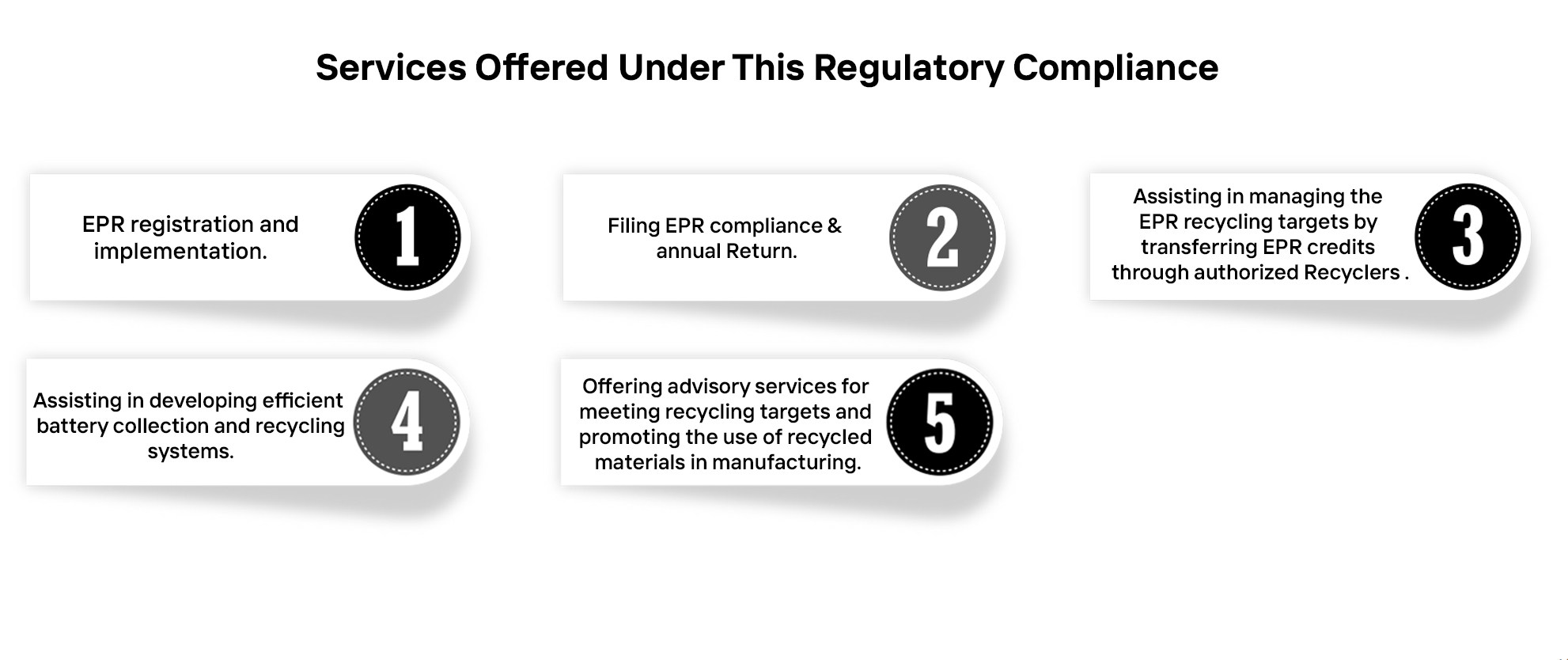The Battery Waste Management Rules, 2022 establish a robust framework for the environmentally sound management of waste batteries, emphasizing recycling, refurbishment, and material recovery to support a circular economy. Compliance includes strict Extended Producer Responsibility (EPR) mandates for producers, importers, and brand owners, requiring the collection, recycling, and use of recycled materials in new batteries. The rules prohibit landfilling and incineration, ensuring that waste batteries are appropriately processed through certified entities.




